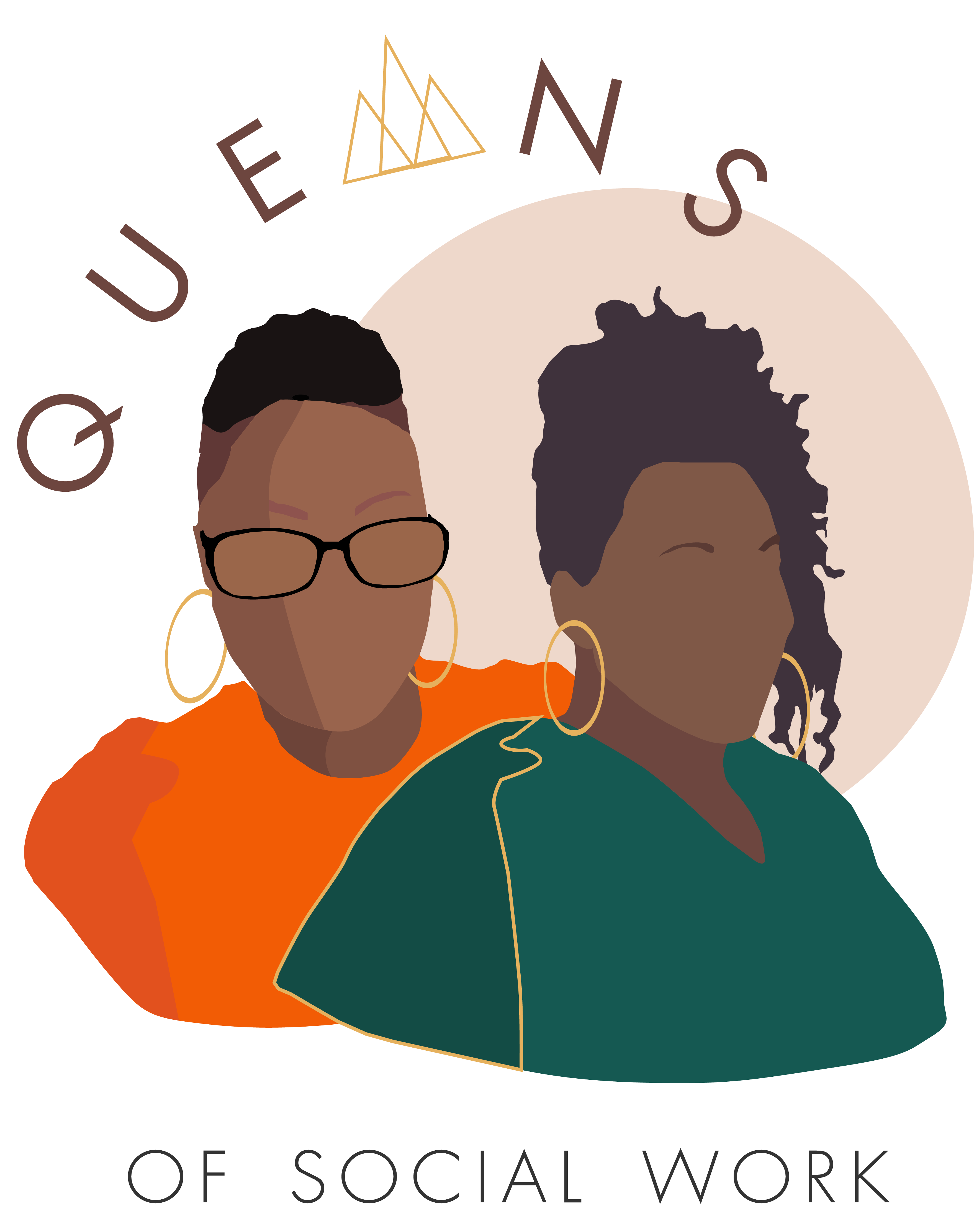Introduction
Burnout among social workers is a pressing issue, but for Black female social workers, it can be compounded by unique challenges such as systemic racism, microaggressions and cultural expectations. These factors, combined with high caseloads and emotional demands, can lead to physical, emotional and mental exhaustion.
At Queens of Social Work, we’re committed to helping you prioritize your well-being and sustainability in your career. In this article, we’ll share actionable strategies and tools specifically tailored for Black female social workers to prevent burnout, thrive professionally and reclaim your joy.
What is Burnout?
Burnout is a state of chronic stress that can affect your physical, emotional and mental health. Signs include:
-
Feeling emotionally drained or detached.
-
Chronic fatigue or lack of motivation.
-
Difficulty concentrating or making decisions.
-
Physical symptoms like headaches or stomach issues.
Preventing burnout requires not just individual effort but systemic and cultural shifts. However, these strategies will help you regain control of your wellness and build resilience.
Burnout Prevention Strategies
1. Build and Protect Your Energy with Boundaries
Black female social workers often feel the pressure to overextend themselves, whether professionally or personally. Setting and maintaining boundaries is critical.
-
Limit after-hours communication: Avoid checking emails or taking calls outside your scheduled work hours. Consider tools like “out-of-office” email responders to reinforce your availability.
-
Say “no” effectively: Practice saying no without guilt. Use phrases like, “I’d love to help, but I’m at capacity right now.”
-
Time blocking: Dedicate specific times for work tasks, self-care and personal commitments, ensuring balance in your daily life.
2. Incorporate Micro-Self-Care into Your Routine
While spa days are great, consistent small practices help prevent burnout long-term.
-
Take movement breaks: Stand up, stretch or go for a quick walk every hour. Apps like Stretchly can send gentle reminders.
-
Practice grounding exercises: Try the 5-4-3-2-1 technique to stay present during stressful moments.
-
Create morning and evening rituals: Begin your day with affirmations and end it with gratitude journaling to frame your mindset positively.
3. Leverage Technology for Efficiency
Use digital tools to manage your workload and minimize overwhelm.
-
Task management: Apps like Trello or Notion can help organize and prioritize tasks.
-
Automate repetitive tasks: Tools like Calendly simplify scheduling, while email templates can save you time responding to common inquiries.
-
Meditation apps: Apps like Calm or Liberate (designed for the Black community) can guide mindfulness practices during breaks.
4. Prioritize Your Mental and Physical Health
Your health is non-negotiable. Make it a priority with these actionable steps:
-
Therapy: Seek a therapist who understands the unique experiences of Black women. Platforms like Therapy for Black Girls can help.
-
Physical activity: Engage in activities you enjoy, whether it’s dancing, yoga or a quick 20-minute workout.
-
Nutritious meals: Prep balanced meals to fuel your energy throughout the day. Use services like Instacart for easy grocery delivery.
5. Cultivate a Strong Support Network
Burnout prevention thrives on connection and community.
-
Peer groups: Join professional groups or networks for Black female social workers to share experiences and solutions.
-
Mentorship: Seek a mentor who can provide career guidance and emotional support.
-
Accountability partners: Work with someone who can encourage you to maintain your self-care practices and boundaries.
6. Advocate for Systemic Change
Burnout is not just a personal issue—it often stems from systemic problems.
-
Raise awareness: Share your challenges with supervisors or organizational leaders to advocate for equitable policies, smaller caseloads and better resources.
-
Unionize or organize: Collaborate with colleagues to push for workplace improvements, such as flexible schedules or mental health days.
-
Take collective action: Partner with organizations like The National Association of Black Social Workers (NABSW) to advocate for broader social work reforms.
Practical Tools to Stay Empowered
Here are some additional tools to help you manage stress and prevent burnout:
-
Journals: Use guided journals like our “Royally You: An Interactive Journal” to process emotions and reflect on wins.
-
Podcasts: Tune into podcasts like The Queens of Social Work for empowering conversations tailored to social workers of color.
-
Books: Read Sister Outsider by Audre Lorde or Rest is Resistance by Tricia Hersey for inspiration.
Burnout Is Real, But You’re Not Alone
Remember, prioritizing your well-being isn’t selfish—it’s necessary. By implementing these strategies, you’ll not only protect yourself from burnout but also inspire others in your community to do the same.
By providing these strategies, we hope to empower Black female social workers to thrive in their careers while safeguarding their well-being.
Stay Empowered - Join the Conversation
Burnout is real, but so is the strength of our community. If this article resonated with you, we invite you to continue the conversation with us on the Queens of Social Work podcast.
In our episode titled, “Who Are the Queens of Social Work?”, we reintroduce ourselves, reflect on the current political and social climate and explore how social workers—especially Black, female and Caribbean social workers can show up, stay empowered and thrive.
Listen here or check out the episode below!
